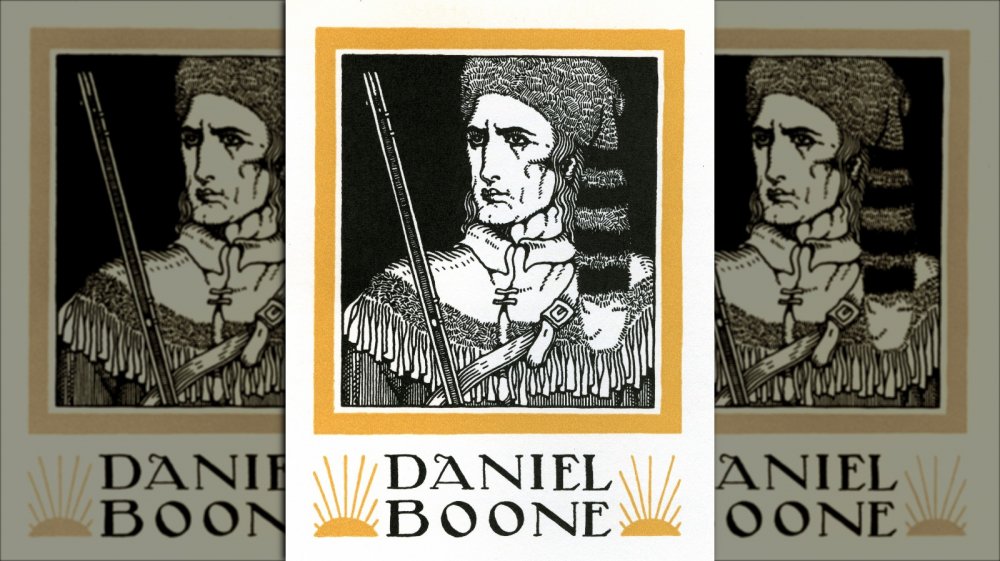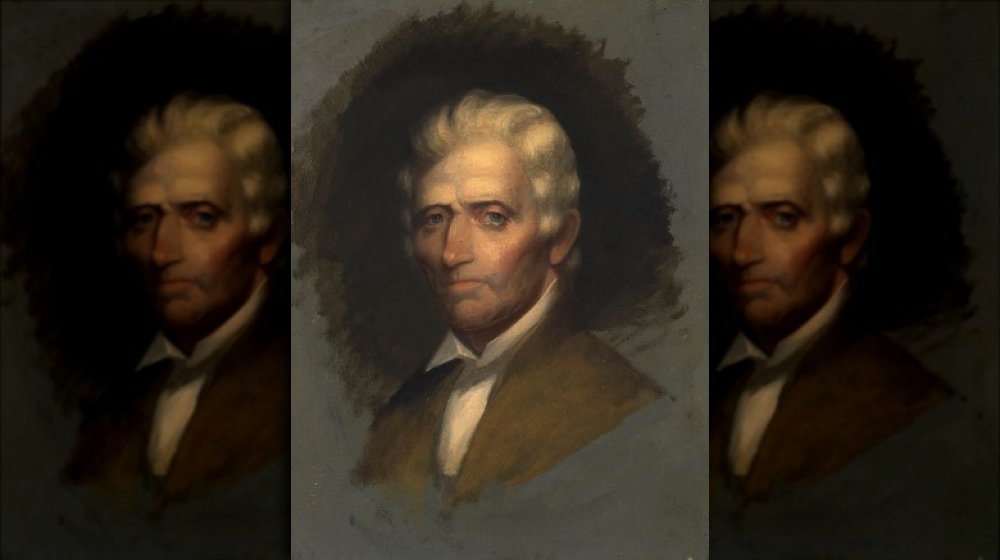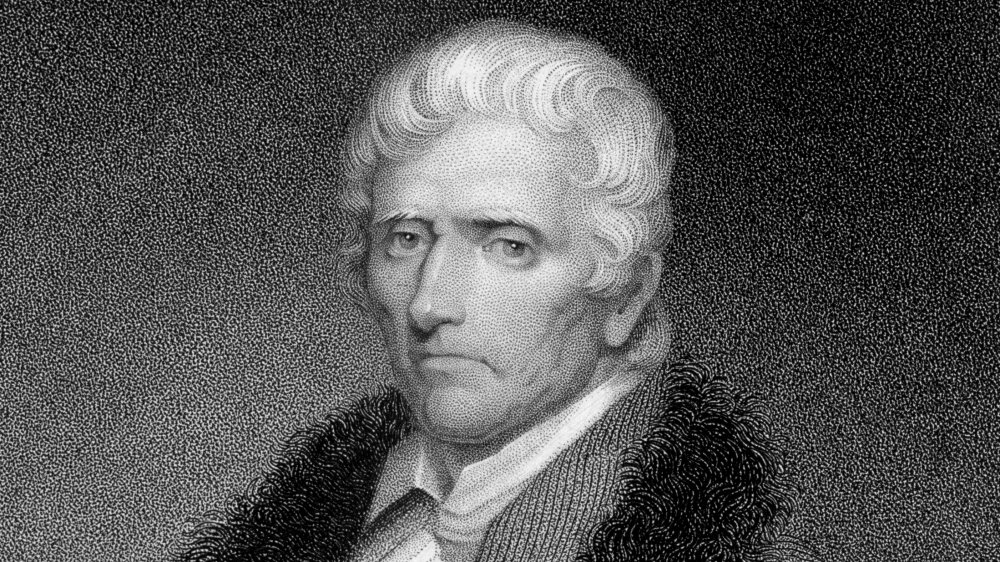Was Daniel Boone Tried For Treason?
We may receive a commission on purchases made from links.
Legendary frontiersman Daniel Boone is an integral piece of the mythology of the Old West that the country has used to justify the racist imperialism of manifest destiny – the trumped-up excuse of the divine mandate behind the genocide involved in American colonialism. For centuries, Boone's legacy was more myth than fact, but recent historians have taken up the responsibility of injecting veracity into the narrative surrounding one of America's most famous pioneers. In her 2015 book Daniel Boone: American Pioneer and Frontiersman, Pat McCarthy shoots down the most blatant of these myths: Boone's affinity for the coonskin cap. He not only didn't wear them, he "could not stand coonskin caps, and usually wore a tall hat made of beaver skins."
Another persistent myth about Daniel Boone was that he was a violent man who enjoyed slaughtering Native Americans. Historian John Mack Faragher's award-winning biography of Boone quotes the pioneer as saying, "I never killed but three," and those lives were taken in defense of himself or his family. A man who knew him wrote that "Boone had very little of the war spirit ... He never liked to take life and always avoided it when he could." An historically accurate depiction of Boone reveals that he would have rather negotiated peace than engage in violence, and this attitude would put him into a bit of trouble with the military in 1778.
Daniel Boone wasn't the all-out patriot his legacy would have us believe
Daniel Boone wasn't really the gung-ho American revolutionary pioneer he's all cracked up to be in the myths told about him. According to the American Law Library, he had been given a captain's commission by the royal governor of Virginia, Lord Dunmore, in 1774. That year, Dunmore waged war against the Native American tribes of the Ohio River Valley, which included the Shawnee and Wyandot, among others. Although Boone fought in these wars, he sometimes censured the violence of the white colonizers, accurately calling the campaign a "war of intrusion" against the native people in order to "dispossess them of their desirable habitations."
Perhaps because of this conflict between his Quaker morality and the need to provide for his family and the other settlers of Boonesborough — the town he had founded after leading the expedition through the Cumberland Gap — Boone found himself in hot water with his own settlers after being taken prisoner by the Shawnee. When they told him their plans to kill all of his men, he worked out a deal with the tribe that effected their surrender. He then spent four months in captivity, and was even "adopted" by them (leading to another popular Boone myth: that he had married a woman from the tribe). He escaped during a wild turkey hunt, but did not receive a hero's welcome upon his return to Boonesborough.
Daniel Boone was court-martialed for treason in 1778
The settlers were wary of Boone after he returned from captivity, and a pair of American militia officers, Benjamin Logan and Richard Callaway, charged him with treason. They alleged that he had conspired with both the Shawnee and the British. A group of militia officers from Kentucky served as both his judges and jurors at his trial. In a piece posted to the American Law Library, law historian Buckner F. Melton, Jr. wrote that Callaway, Boone, and some others who had escaped Shawnee captivity gave testimony. Calloway said that "Boone was in favor of the British government" and that "all of his conduct proved it."
But Boone stuck to his story, explaining that he and his men were outnumbered by the Shawnee. They would all have been easily slaughtered if he had not decided to "use some stratagem" to mislead both the Shawnee and the British. The accusations were a blemish on Boone's reputation, but he was ultimately acquitted of the charges. Since his family was reticent about the whole situation and the official records of the court-martial hearing were destroyed after the trial, details of the whole affair are scant.
With an American public primed to accept heroes that would justify the violence of the westward expansion of the country's boundaries, Boone's treason was all but lost to pop history, replaced by a cap he never wore and a phony patriotism that he himself questioned, as should we all.


